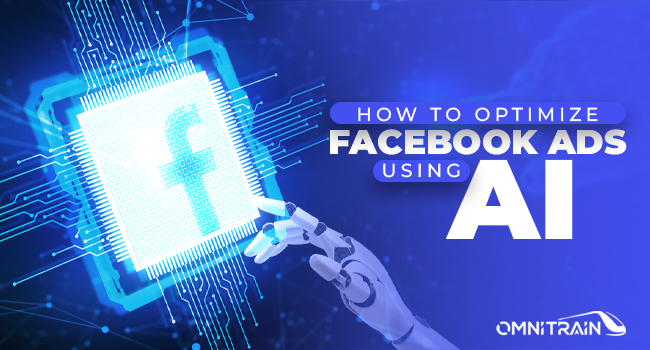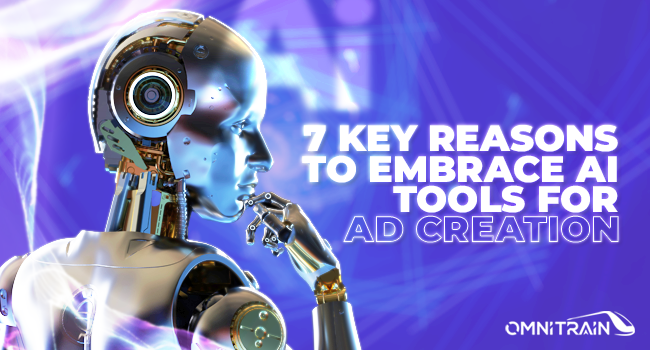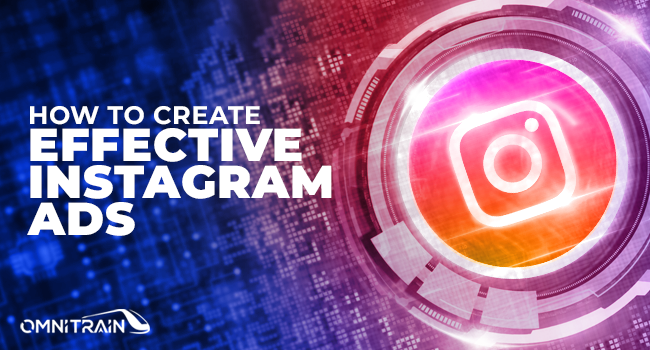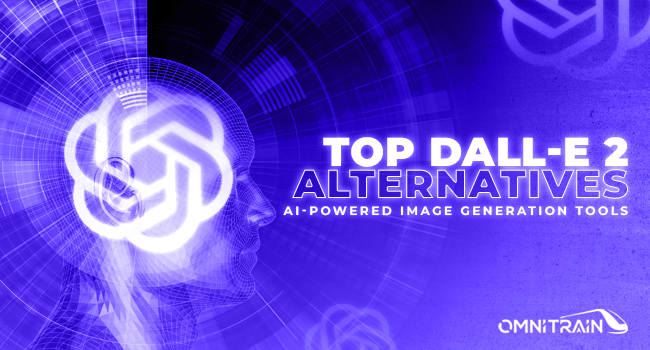AI-driven marketing strategies: Top 5 Proven Benefits
AI-driven marketing strategies are reshaping how businesses reach and engage their audiences. By merging artificial intelligence with marketing, brands can automate tasks, personalize customer interactions, and make smarter, data-driven decisions. Here’s how AI improves marketing:
- Automation: Efficiency skyrockets as AI automates tasks like content scheduling and customer segmentation.
- Personalization: Custom experiences boost engagement by delivering relevant content to the right audience.
- Data Insights: Advanced analytics provide deep insights into consumer behavior, guiding strategic decisions.
In today’s competitive market, adopting AI-driven marketing strategies is not just a trend—it’s essential for staying ahead.
I’m Josh Benson. I’ve spent years in marketing, helping companies realize the potential of AI-driven marketing strategies. At Omnitrain, we focus on creating tools that help marketers transform concepts into compelling campaigns. As we dig deeper, let’s explore how strategic planning with AI can lift your marketing efforts.
Understanding AI-Driven Marketing Strategies
AI-driven marketing strategies are revolutionizing the way businesses connect with their customers. Let’s break down the core elements that make these strategies so powerful: data analysis, customer segmentation, personalization, and automation.
Data Analysis
At the heart of AI-driven marketing is data analysis. AI tools sift through enormous amounts of data to uncover patterns and insights about customer behavior. This isn’t just about knowing who your customers are, but understanding what they want and how they behave online. According to a recent study, 68% of companies saw an improvement in their content marketing ROI after integrating AI, underscoring the impact of data-driven decisions.
Customer Segmentation
Once you have the data, the next step is customer segmentation. AI excels at grouping customers based on shared traits, behaviors, and preferences. Think of AI as your super-smart friend who can analyze data faster than you can sip a coffee. This segmentation allows for a more targeted approach, ensuring that your marketing messages hit the right people at the right time.
Personalization
With AI, personalization reaches new heights. By analyzing customer data, AI can tailor marketing efforts to match individual preferences and needs. This personalized approach isn’t just about making customers feel special; it drives real results. Personalized email campaigns, for instance, often see higher open and click-through rates than generic ones. This is because the content resonates more with the recipient, increasing the likelihood of engagement.
Automation
Finally, automation is a game-changer in AI-driven marketing strategies. AI automates repetitive tasks like content scheduling and social media posting, freeing up valuable time for marketers to focus on strategy and creativity. Automation also enables real-time adjustments to marketing campaigns, ensuring they remain effective as customer behaviors and market conditions change.
Incorporating these elements into your marketing strategy can significantly boost efficiency and effectiveness. AI doesn’t just make marketing easier; it makes it smarter. By leveraging AI-driven marketing strategies, you can deliver more engaging, personalized experiences to your audience, ultimately driving better results for your business.
Key Components of AI-Driven Marketing Strategies
AI-driven marketing strategies are built on a few key components: data collection, customer insights, and campaign automation. These elements work together to create a more efficient and effective marketing approach.
Data Collection
Data collection is the foundation of any AI-driven marketing strategy. It involves gathering information on customer behavior, preferences, and trends. AI tools can quickly sift through heaps of data to uncover valuable insights. This isn’t just about collecting data; it’s about collecting the right data.
For example, companies like MovingWaldo use AI to determine audience segments based on data points such as website visits and referral movements. This allows them to create highly targeted marketing campaigns. The key is to ensure that data is gathered and stored safely, adhering to privacy regulations to maintain customer trust.
Customer Insights
Once the data is collected, it’s time to turn it into actionable insights. AI excels at analyzing data to reveal patterns and trends that might not be immediately obvious. These insights help marketers understand their customers on a deeper level, allowing for more personalized and effective marketing strategies.
AI can predict customer needs and preferences, enabling businesses to tailor their offerings accordingly. This level of insight transforms the customer experience, making it more relevant and engaging. For instance, AI can help determine the best moments to offer services to customers, as seen in the case of MovingWaldo’s data-driven email campaigns.
Campaign Automation
Campaign automation is where AI really shines. By automating repetitive tasks like scheduling posts or sending emails, AI frees up marketers to focus on strategy and creativity. Automation also allows for real-time adjustments, ensuring that campaigns remain effective as customer behaviors and market conditions change.
AI-powered automation can scale personalized efforts, reaching a wider audience without losing the personal touch. This is crucial for maintaining engagement and driving conversions. As AI continues to evolve, its ability to automate complex marketing processes will only improve, providing even greater benefits to businesses.
By integrating these key components into your marketing strategy, you can harness the full potential of AI. This leads to more efficient, personalized, and impactful marketing efforts that drive better results for your business.
Implementing AI in Marketing
When it comes to implementing AI in marketing, the right tools can make all the difference. AI tools are designed to streamline marketing processes and improve personalization and content creation.
AI Tools
AI tools are like a marketer’s best friend. They automate routine tasks and provide insights that would take humans much longer to uncover. For example, AI-powered chatbots handle customer inquiries 24/7, offering personalized responses and freeing up human agents for more complex tasks. Tools like these are essential for businesses looking to boost efficiency without sacrificing quality.
Personalization
Personalization is where AI truly shines. By analyzing vast datasets, AI can tailor marketing messages to fit individual customer preferences. This means customers receive content that matters to them, increasing engagement and satisfaction. For instance, AI can recommend products based on a customer’s past purchases or browsing history, much like how Amazon suggests items you might like.
Content Creation
AI is also revolutionizing content creation. Tools like ChatGPT can generate blog posts, social media updates, and even entire articles, all while maintaining a consistent brand voice. This doesn’t just save time—it ensures that content is always fresh and relevant. AI can also assist in brainstorming ideas, helping marketers overcome writer’s block and come up with creative headlines or concepts.
Incorporating AI into your marketing strategy isn’t just about keeping up with technology; it’s about staying ahead. By leveraging AI tools for personalization and content creation, businesses can create more engaging and effective marketing campaigns. This not only improves customer experience but also drives better business results.
Top Benefits of AI-Driven Marketing Strategies
When it comes to AI-driven marketing strategies, the benefits are clear and impactful. Let’s explore how AI can transform your marketing efforts in terms of efficiency, engagement, and return on investment (ROI).
Efficiency
AI significantly boosts efficiency by automating repetitive tasks and streamlining processes. Imagine having an AI tool that schedules your social media posts or analyzes customer data to provide actionable insights. This means less time spent on mundane tasks and more focus on strategic planning.
For instance, AI-powered content generation tools can produce high-quality content quickly. This allows your team to focus on creative storytelling rather than the nitty-gritty details of content production. By accelerating these processes, AI helps you maintain a steady flow of engaging content without burning out your team.
Engagement
Engagement is at the heart of successful marketing. AI helps improve engagement by personalizing interactions with your audience. With AI, you can tailor marketing messages to align with individual customer preferences and behaviors.
Consider AI-driven chatbots that provide real-time, personalized responses to customer inquiries. These chatbots not only answer questions but also recommend products based on customer behavior, much like Amazon’s recommendation system. This level of personalization boosts customer satisfaction and fosters a deeper connection with your brand.
Return on Investment (ROI)
Improving ROI is a top priority for any marketer, and AI delivers on this front by optimizing campaign performance. AI tools analyze vast amounts of data to uncover patterns and trends, allowing for informed decision-making. This means you can allocate your marketing budget more effectively, minimizing wasted spend.
For example, predictive analytics can refine your campaigns by identifying what works and what doesn’t. AI can also automate A/B testing, quickly determining which campaign versions perform best. By continuously learning from data, AI ensures that your marketing efforts are always on the right track, leading to better ROI.
In summary, AI-driven marketing strategies offer unparalleled benefits in efficiency, engagement, and ROI. By integrating AI into your marketing plan, you not only improve your current processes but also position your business for future success.
Frequently Asked Questions about AI-Driven Marketing Strategies
What is AI-driven digital marketing?
AI-driven digital marketing uses artificial intelligence to improve and automate marketing efforts. This involves using AI for tasks like personalization, customer insights, and data analysis. Imagine an AI system analyzing customer behavior and then automatically sending personalized emails based on that data. This level of personalization is what makes AI-driven marketing so powerful.
For example, AI can segment customers into specific groups based on their preferences and behaviors. This helps marketers create more targeted campaigns that resonate with each audience segment.
How can AI be used for marketing?
AI can transform marketing through automation and data analysis. It can automate repetitive tasks, like scheduling social media posts or sending follow-up emails. This frees up time for marketers to focus on strategy and creativity.
AI also excels in data analysis. It can sift through vast amounts of data to uncover customer insights that might be missed by human analysts. These insights can guide marketing decisions, from choosing the right audience to crafting the perfect message.
Consider AI-powered tools that analyze customer feedback to gauge sentiment. These tools help marketers understand how customers feel about their brand, enabling them to make data-driven improvements.
What is the best example of AI in marketing?
A standout example of AI in marketing is the use of AI for personalization in e-commerce platforms. AI-powered recommendation systems suggest products based on a customer’s browsing history and past purchases. This system is not only efficient but also incredibly effective at increasing sales.
Another notable example is virtual assistants that use AI to understand voice commands and provide personalized responses. This improves the customer experience by making interactions more intuitive and engaging.
In conclusion, AI-driven marketing strategies leverage the power of AI to personalize experiences, derive customer insights, and automate tasks. By understanding and utilizing these capabilities, businesses can significantly improve their marketing efficiency and effectiveness.
Conclusion
In today’s digital world, AI-driven marketing strategies are not just a luxury—they’re a necessity. As we’ve explored, AI can transform how businesses engage with their audiences, offering insights and automation that were once unimaginable.
At OmniTrain, we understand the power of AI in marketing. Our platform is designed to create AI-powered ads that resonate emotionally with your audience. Imagine crafting compelling, high-converting ads in seconds without needing extensive design skills. That’s the magic of OmniTrain. Our AI takes on the roles of a graphic designer, marketer, and storyteller to deliver ads that connect on a deep emotional level.
Why is emotional resonance so crucial? Because it drives engagement. When ads speak to the heart, they don’t just attract attention—they foster loyalty. That’s why our AI doesn’t just focus on what’s being sold but also on why people would want it. It’s about creating a narrative that compels your audience to act.
Incorporating AI into your marketing strategy isn’t about replacing human creativity—it’s about enhancing it. By automating routine tasks and providing actionable insights, AI frees up marketers to focus on what they do best: crafting messages that resonate.
Ready to explore the future of digital advertising? Find how OmniTrain can revolutionize your ad creation process with our AI Facebook Ads Generator.
In summary, embracing AI in marketing is not just about keeping pace with technological advancements. It’s about open uping new possibilities for engagement and growth. With OmniTrain, you have a partner that understands the intricacies of emotional resonance and is committed to helping you succeed. Let’s harness the power of AI together and create marketing strategies that truly shine.










